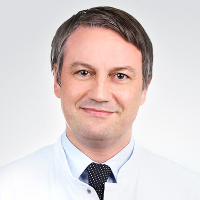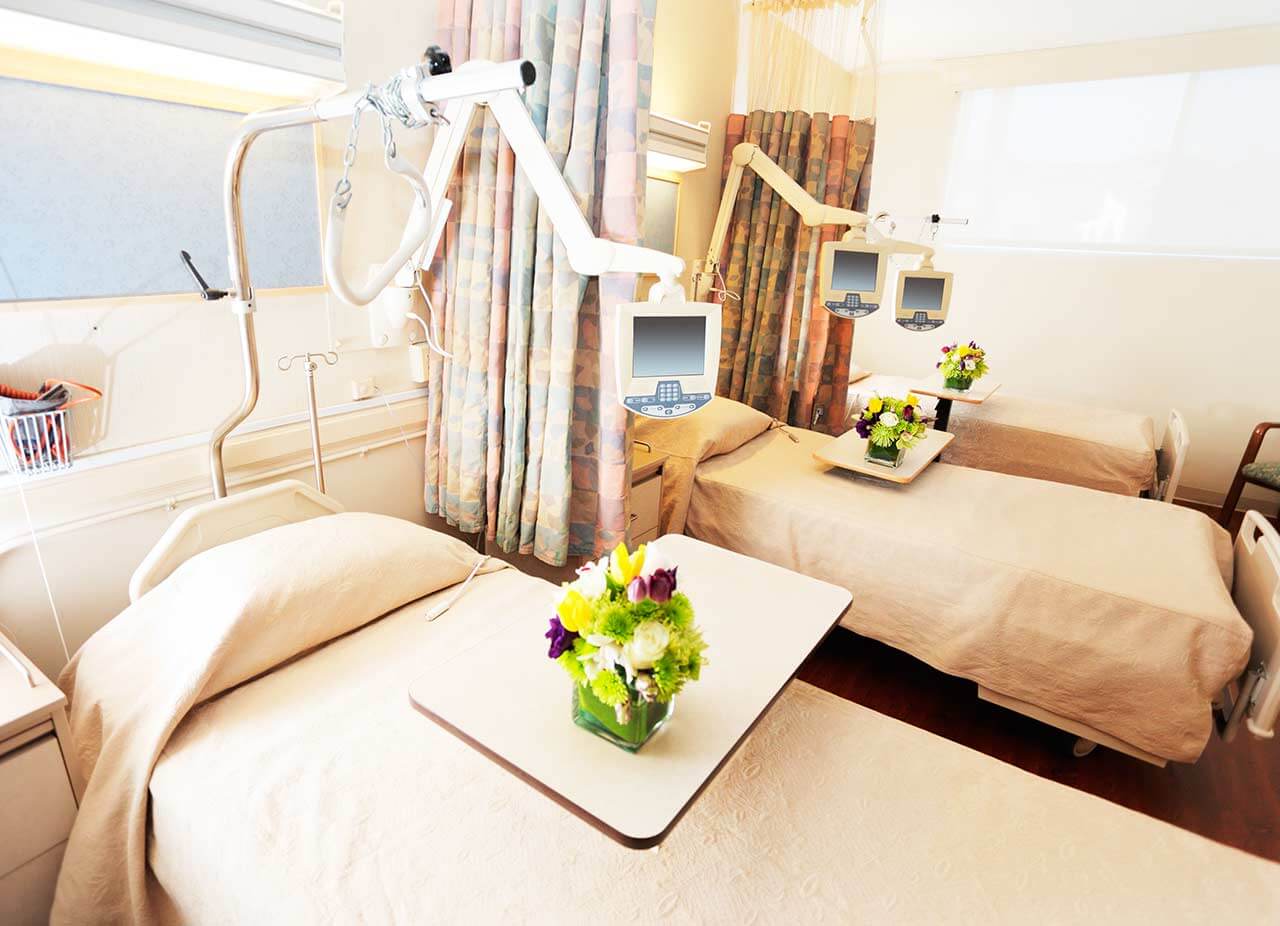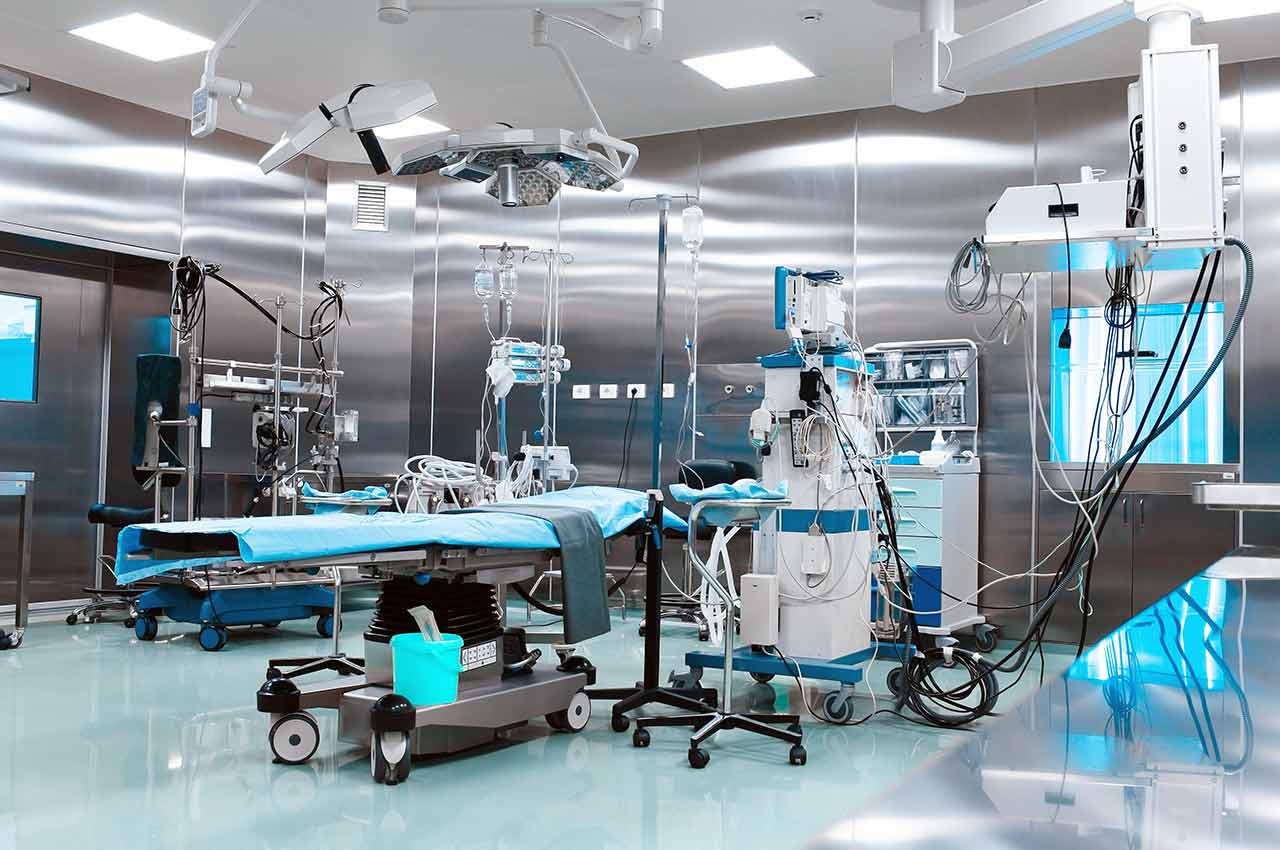
The program includes:
- Initial presentation in the clinic
- clinical history taking
- physical examination
- review of medical records
- laboratory tests:
- complete blood count
- general urine analysis
- biochemical analysis of blood
- indicators of inflammation
- indicators of blood coagulation
- X-ray/MRI examination of the knee
- preoperative care
- total knee replacement, cost of the implant is included
- symptomatic treatment
- control examinations
- the cost of essential medicines and materials
- orthopedic appliances
- physiotherapy
- nursing services
- full hospital accommodation
- explanation of future recommendations
How program is carried out
Preliminary preparation for surgery: quitting smoking and drinking alcohol 2 weeks before surgery; cancelling non-steroidal anti-inflammatory drugs (diclofenac, ibuprofen); cancelling anticoagulants (warfarin); normalization of body mass, if possible.
Preoperative examination, including consultation with an anesthesiologist and necessary related specialists. X-ray examination and MRI of the knee joints are performed. The examination takes 1-2 days.
Surgical knee replacement. The operation is performed under general anesthesia and lasts for about 2 hours.
Postoperative care. During the first day after the intervention the patient stays in the intensive care unit, under round-the-clock medical supervision. After that, with a smooth course of the postoperative period, the patient is transferred to a regular ward and the drains are removed. The range of motion expands gradually, from light toes movements to walking. Walking with the use of walking aids is allowed in 3-5 days after the operation. Normal walking without the use of walking aids (crutches, cane) will become possible in 6-12 weeks.
Finally, the attending physician will evaluate the results of control examinations, schedule the date of discharge from the hospital and give you detailed recommendations for further follow-up and treatment.
Required documents
- Medical records
- X-ray examination, MRI/CT scan (if available)
Service
You may also book:
 BookingHealth Price from:
BookingHealth Price from:
About the department
The Department of Adult and Pediatric Orthopedics, Trauma Surgery, Spinal Surgery and Foot Surgery at the Park-Clinic Weissensee Berlin provides comprehensive diagnostics and high-quality treatment of congenital and acquired musculoskeletal diseases, as well as injuries of varying severity. The department offers the services of a specialized Maximum Care Joint Replacement Center (endoCert certification), which provides effective treatment of joint diseases. The department's specialists also successfully cope with the treatment of diseases and injuries of the spine, foot pathologies, and malignant musculoskeletal tumors. The department is equipped with state-of-the-art equipment for assessing the condition of bones, joints, muscles, tendons, and ligaments, as well as detecting the slightest pathological changes. Minimally invasive interventions are widely used in the treatment of patients with pathological lesions of the spine and joints. The department's patients receive medical care from top-class doctors who regularly demonstrate high treatment success rates.
The Head Physician of the department is Prof. Dr. med. Oliver Hauschild. He is a leading expert in the area of his specialization and also has additional qualifications in Special Orthopedic Surgery and Traumatology. The doctor regularly takes part in professional national and international congresses and actively participates in the development of new therapeutic methods.
The priority area of the department's work is knee and hip arthroplasty, which is performed in a certified center. Surgery for partial or total joint replacement is performed only when conservative treatment is ineffective. The department's doctors perform minimally invasive interventions whenever possible. The department is equipped with state-of-the-art surgical instruments for implanting endoprostheses. For example, surgeons use a computer-assisted navigation system, which allows them to obtain an optimal surgical result without an additional X-ray load. The department's competence also includes revision operations after previous joint replacement surgery, for example, due to infection or loosening of artificial joint elements. The department's surgeons have been performing joint replacement surgery for decades, and therefore they have unique competencies in this medical field. In addition, the specialists regularly undergo advanced training to provide patients with the most effective, but, at the same time, less traumatic treatment.
The department's team of doctors often admits patients with musculoskeletal cancers such as primary bone tumors and bone metastases, soft tissue sarcomas, and other neoplasms. Cancer treatment requires an interdisciplinary approach, so a treatment regimen for each patient is developed during tumor boards with the participation of orthopedists, oncologists, radiation therapists, and other physicians. A surgical intervention for tumor resection is the first-line treatment and often the only one. In most cases, surgeons manage to perform the intervention using minimally invasive techniques. However, at the advanced stages of the oncological process, the operation is supplemented with radiation therapy and/or chemotherapy. After the completion of the course of treatment, a patient is strongly recommended to regularly visit a doctor to prevent or detect a recurrence at an early stage.
The department's competence also includes spinal surgery. The most common diagnoses include spinal disc herniation, spinal stenosis, spinal tumors (lipomas, astrocytomas, ependymomas), facet syndrome, and chronic back pain. To make an accurate diagnosis, doctors carry out a clinical examination, imaging tests (X-ray, CT, and MRI scans), laboratory tests, a biopsy for suspected cancer, and other examinations. For patients with herniated discs and chronic back pain, conservative treatment with drugs, physiotherapy, therapeutic exercises, and massage is often sufficient. In more complex cases, surgery is still required for hernia repair. Chronic pain syndromes are treated with blocks under imaging guidance. If a malignant spinal tumor is diagnosed in a patient, an operation is required to resect the neoplasm, which is usually supplemented with chemotherapy, radiation therapy, and other conservative methods.
The specialists in foot surgery are responsible for the diagnostics and treatment of foot diseases, deformities, and injuries. Patients with hallux valgus and hallux rigidus, heel spurs, sprains, ankle arthritis, Charcot foot, and tendon and ligament tears receive medical care here. Doctors usually perform microsurgical and minimally invasive interventions, after which patients recover in the shortest possible time.
An important role is also given to pediatric orthopedics. The specialists offer patients a wide range of conservative and surgical methods for treating feet, leg, hip joint and spinal diseases. Clubfoot, pes equinus, and pes adductus are repaired in the department using plaster casts or surgical techniques. In addition, the specialists carry out ultrasound diagnostics of hip dysplasia in young children and joint-preserving surgery when treating growth disorders in children. The department performs operations to repair axial deformities of the legs. Pathological changes in the spine, such as scoliosis, can be treated with both conservative and surgical methods.
The main focuses of the department's work are as follows:
- Knee, hip, shoulder and ankle replacement surgery, including revision interventions
- Spinal surgery, including microsurgical techniques
- Foot surgery
- Shoulder surgery
- Arthroscopic procedures
- Sports orthopedics, including a cartilage cell transplant, treatment of patellar lesions, partial resection and repeated fixation of the meniscus, and knee ligament reconstruction
- Orthopedic oncology with a focus on the treatment of tumors and bone metastases
- Traumatology: treatment of all types of bone fractures, injuries of tendons, muscles, etc.
- Pediatric orthopedics and traumatology
- Other medical services
Curriculum vitae
Higher Education and Professional Career
- Since 2019 Head of the Maximum Care Joint Replacement Center at the Park-Clinic Weissensee Berlin.
- Since 2017 Head Physician of the Department of Adult and Pediatric Orthopedics, Trauma Surgery, Spinal Surgery and Foot Surgery at the Park-Clinic Weissensee Berlin.
- 2016 Head of the Maximum Care Joint Replacement Center at the University Hospital Freiburg.
- 2012 Senior Physician, Department of Adult and Pediatric Orthopedics, Trauma Surgery, Spinal Surgery and Foot Surgery at the Park-Clinic Weissensee Berlin.
- 2011 - 2012 Acting Head of the Department of Orthopedics and Traumatology at the University Hospital Freiburg.
- 2010 Board certification in Orthopedics and Traumatology.
- Since 2009 Advanced Trauma Life Support Instructor.
- 2004 - 2010 Assistant Physician in the Department of Orthopedics and Traumatology at the University Hospital Freiburg.
- 1996 - 2003 Medical studies at the Eberhard Karl University of Tuebingen.
Research and Teaching Career
- 2017 Extraordinary Professor at the Faculty of Medicine of the Albert Ludwig University of Freiburg.
- 2013 Habilitation, Albert Ludwig University of Freiburg.
- 2003 Thesis defense, Albert Ludwig University of Freiburg.
Clinical Interests
- Joint replacement surgery and revision interventions on the knee and hip joints.
- Orthopedic surgical oncology.
- Joint-preserving knee and hip surgery.
- Musculoskeletal injuries, including pelvic and spinal injuries.
Memberships in Professional Societies
- Since 2005 German Trauma Society (DGU).
- Since 2005 Working Group on Pelvic Injuries of the German Trauma Society (DGU).
- Since 2012 Working Group on Arthroscopy.
- Since 2013 Working Group on Joint Replacement Surgery.
Photo of the doctor: (c) Park-Klinik Weißensee GmbH
About hospital
The Park-Clinic Weissensee Berlin is a progressive medical facility with the highest standards of medical care. The medical facility is an academic hospital of the Charite University Hospital Berlin, thanks to which the specialists have access to all medical innovations. The clinic was opened on April 1, 1997, on the former Weissensee Municipal Hospital site. The building of the medical facility has been completely renovated, so today, patients can enjoy the excellent infrastructure and state-of-the-art medical equipment.
The clinic has 350 beds for inpatient treatment. More than 17,000 inpatients receive treatment here annually. More than 8,500 surgical interventions are performed in state-of-the-art operating rooms of the clinic. Patients' health is in the safe hands of a large team of doctors and nursing staff, numbering more than 700 employees. The focus of the specialists' efforts is a patient and their health problem, for the elimination of which many effective treatment methods are available.
The clinic's departments are headed by reputable specialists who keep pace with medical innovations. The medical center is distinguished by its unique experience and high competence in treating bowel and breast cancer, gastrointestinal diseases, rheumatic pathologies, gynecologic cancers, and hernias. The clinic also specializes in treating spinal diseases and stroke, knee and hip replacement surgery, aesthetic and functional surgery of the nasal cavity, frontal and maxillary sinuses. In addition, the clinic has the Department of Imaging Diagnostics, the Diagnostic Laboratory, and the Department of Physiotherapy.
In addition to the highest quality of medical service, the staff of the clinic care about the comfort of their patients' stay within its walls. The medical facility has a beautiful interior, which was created by students and graduates of the Weissensee Academy of Art. The clinic is decorated with beautiful paintings and sculptures: artistic compositions can be seen both on the walls of the corridors, and in cafes and patient rooms. The clinic is also surrounded by a beautiful park, which is immersed in the greenery of various trees and shrubs in spring and summer.
Photo: (с) depositphotos
Accommodation in hospital
Patients rooms
The patients of the Park-Clinic Weissensee Berlin live in comfortable rooms. The standard patient room includes an automatically adjustable bed, a bedside table, a wardrobe, a table and chairs for receiving visitors, as well as a TV and a radio. Wi-Fi is also available in the patient rooms.
A great advantage for patients is the location of the clinic in a picturesque park. The patients of the medical center enjoy walking in the park, which is decorated with beautiful sculptures. Walks provide an opportunity to escape from the therapeutic process and enjoy the natural landscape.
Meals and Menus
A patient and their accompanying person are offered a daily choice of three menus. If, for some reason, you do not eat all the foods, please inform the medical staff in advance and you will be offered an individual menu.
There is also a cafe, Picknick im Park, on the territory of the clinic, which offers full breakfasts, various snacks, hot and cold drinks, as well as a large assortment of delicious cakes.
Further details
Standard rooms include:
Accompanying person
Your accompanying person may stay with you in your patient room or at the hotel of your choice during the inpatient program.
Hotel
You may stay at the hotel of your choice during the outpatient program. Our managers will support you for selecting the best option.





